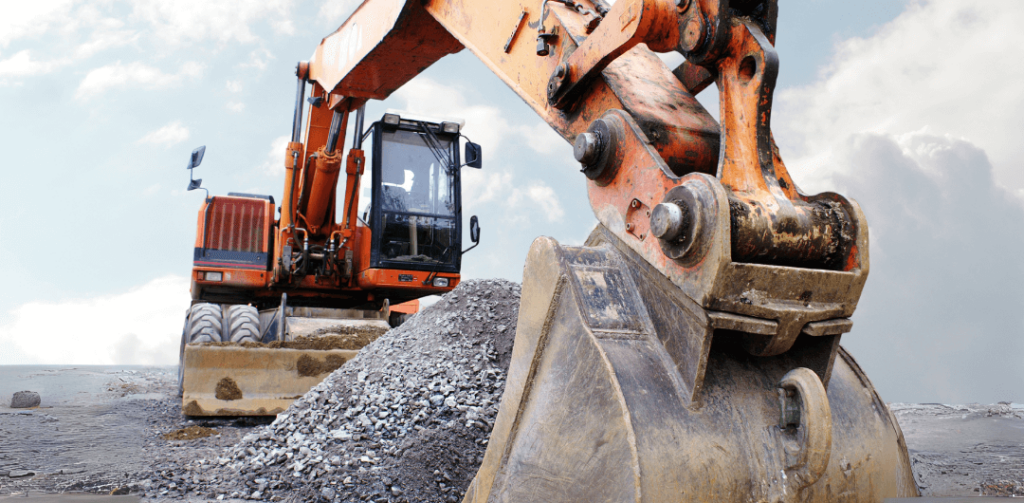
In the world of heavy equipment machines, grease is always there. Construction gear, farming tools, and industrial machines can get really dirty with grease buildup. To keep them working well, you need to clean them regularly. One important way to do this is by pressure washing. In this blog, we’ll talk about getting rid of grease from big machines, focusing on the benefits and techniques of pressure washing.
Understanding the Challenge-
Grease buildup on heavy equipment looks bad and can mess up how it works. If you leave grease on there, it can turn into a hard layer that collects dirt and makes the equipment not work as well. If you don’t clean it off, the equipment might not work as efficiently, break down faster, and could even be dangerous.
Choosing the Right Method-
There are different ways to get rid of grease from big machines, like scrubbing or using chemicals. But pressure washing is the best because it’s fast, cleans well, and reaches tough spots easily. It saves time and ensures a thorough, consistently clean, even in hard-to-reach areas, making it the top choice for heavy equipment maintenance.
The Power of Heavy Equipment Pressure Washing-
Heavy equipment pressure washing means using special cleaning tools to remove dirt, grease, and other dirt from machines. It uses strong water pressure and sometimes eco-friendly cleaners to wash away tough stains. This process helps keep machinery clean and functioning well, reducing the risk of damage and extending its lifespan. Regular cleaning also promotes safety by removing slippery substances that could cause accidents.
Time Efficiency:
One of the most significant advantages of heavy equipment pressure washing is its time efficiency. Traditional methods, such as manual scrubbing, may require hours of labour, and even then, the results may not be as comprehensive. Heavy equipment pressure washing can cover large surfaces quickly, minimizing downtime and allowing the machinery to return to operation promptly.
Thorough Cleaning:
The high-pressure water jets used in heavy equipment pressure washing can reach deep into crevices and intricate components, ensuring a thorough cleaning. This is crucial for heavy equipment, as grease can accumulate in hidden areas that are challenging to access with conventional cleaning methods. Pressure washing eliminates the need for disassembling components for cleaning, saving both time and effort.
Environmentally Friendly Options:
Concerns about the environmental impact of cleaning processes are on the rise. Heavy equipment pressure washing offers environmentally friendly options by allowing the use of biodegradable and eco-friendly cleaning agents. This ensures that the cleaning process does not contribute to pollution or harm surrounding ecosystems.
Techniques for Heavy Equipment Pressure Washing-
While heavy equipment pressure washing is a potent method for grease removal, using the right techniques is crucial to achieving optimal results and preventing damage to the machinery.
Adjusting Pressure Levels:
Different surfaces and components of heavy equipment may require varying pressure levels. It is essential to adjust the pressure settings on the pressure washer to ensure effective cleaning without causing damage. For delicate parts, lower pressure settings should be used, while tougher surfaces can withstand higher pressures.
Selecting Appropriate Cleaning Agents:
Choosing the right cleaning agents is another critical factor in heavy equipment pressure washing. Eco-friendly degreasers are often preferred, as they effectively break down grease without posing harm to the environment. It is essential to follow manufacturer guidelines and dilution recommendations when using cleaning agents to avoid adverse effects on the equipment.
Maintaining a Safe Distance:
Maintaining a safe distance between the pressure washer nozzle and the equipment is vital to prevent any damage. Too close proximity may result in surface erosion or paint damage, while too far may reduce the cleaning effectiveness. Striking the right balance ensures a thorough cleaning without compromising the integrity of the machinery.
Personal Protective Equipment (PPE):
While heavy equipment pressure washing is a powerful tool, it is essential to prioritize safety during the process. Personal Protective Equipment (PPE) should be worn by operators to safeguard against potential hazards. This includes protective eyewear to shield the eyes from debris dislodged during the washing process and waterproof clothing to prevent exposure to high-pressure water. Gloves can also provide an additional layer of protection against chemical cleaning agents.
Regular Maintenance Schedule:
Implementing a regular maintenance schedule that includes heavy equipment pressure washing is key to preventing excessive grease buildup. By incorporating pressure washing into routine maintenance, operators can address grease-related issues before they escalate, maintaining the equipment’s efficiency and minimizing the risk of unexpected breakdowns.
Professional Services:
For optimal results and to ensure the longevity of heavy equipment, some businesses opt for professional heavy equipment pressure washing services. Professional pressure washing companies have the expertise, specialized equipment, and knowledge of industry best practices. This not only guarantees a thorough cleaning but also alleviates the burden on in-house staff, allowing them to focus on core operational tasks.
Water Recovery Systems:
In environmentally conscious industries, the use of water recovery systems alongside heavy equipment pressure washing is gaining popularity. These systems capture and filter the water used during the cleaning process, allowing for its reuse. This not only reduces water consumption but also prevents contaminated water from entering stormwater drains, addressing environmental concerns.
Read More:
What Stains Can I Remove With High Pressure Cleaning?
What are the Solutions for Graffiti Removal from Different Surfaces?
Conclusion:
In addition, heavy equipment pressure washing helps prevent corrosion and extends the lifespan of the machinery. It also improves safety by removing hazardous materials from the equipment surfaces. With its straightforward operation, even inexperienced operators can use pressure washers effectively. Plus, they’re cost-effective in the long run, saving companies money on maintenance. Overall, heavy equipment pressure washing is a vital part of keeping machinery running smoothly and efficiently.



